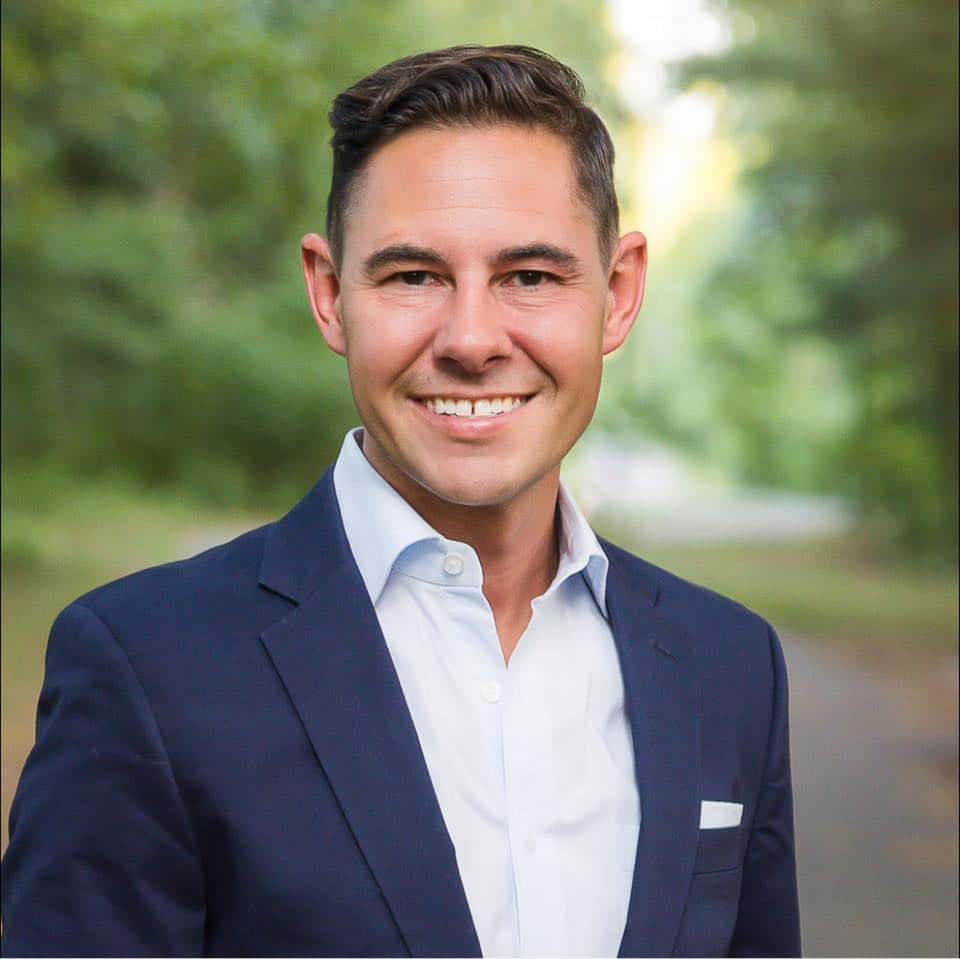State Sen. Jake Oliveira
Reminder Publishing file photo
Massachusetts’s new legislative session has begun, and state Sen. Jake Oliveira has his eye on several issues he plans to address over this two-year term. Oliveira, who was first elected to the state Senate in 2022 and reelected in November 2024, said he wants to continue to tackle education, transportation and healthcare.
“As someone who is proud to represent Western Massachusetts, I see everything I file through a regional equity lens,” Oliveira (D-Ludlow) said. He said many of his priorities align with those of the Gov. Maura Healey administration and build on the state’s legislative successes.
Among those successes is the most recent iteration of the state’s PACT Act, which aims to increase transparency in the pharmaceutical industry and bring down the out-of-pocket cost of medications. Passed Jan. 8, it capped insurance copays for at least one brand name medicine for diabetes, asthma and certain heart conditions at $25 per month, while eliminating the copay for at least one generic medicine that treats these conditions.
Oliveira said he knows firsthand how hard it is to get access to healthcare in the state. During the coronavirus pandemic, he was dropped by his primary care doctor and struggled to find a new one. Before the Legislature this session is a bill that would allow Massachusetts to adopt the Physician’s Assistant Licensure Compact, a multi-state agreement that would make it easier for physician’s assistants with a license in one of the states to obtain licensure in another. Thirteen states have enacted the compact and seven states, including Massachusetts, are considering it.
According to Oliveira, one of the state’s legislative successes is the 2022 Fair Share Amendment, which added a 4% tax surcharge on income over $1 million. Revenue from the Fair Share Amendment has exceeded estimates, with only $1 billion of the more than $2 billion in revenue budgeted. Under the law, the money must be dedicated to transportation and education, two areas Oliveira spoke about in-depth.
Chapter 70 is the primary way state aid for K-12 education is routed to communities. The 2019 Student Opportunity Act was designed to increase Chapter 70 state aid while changing the way it is distributed among school districts, providing weight to districts with large numbers of students who have disabilities, are English learners and/or are from low-income families. However, some districts, including several in Oliveira’s district, have not seen benefits from the Student Opportunity Act. Oliveira said that the formula needs to be reworked once more to address oversights and balance the impacts of inflation.
Oliveira is also working on other aspects of education equity. During Healey’s annual State of the Commonwealth address on Jan. 15, she praised a bill Oliveira reintroduced in the Senate that would make American Sign Language classes eligible for K-12 course credit. State Rep. Carol Doherty (D-Taunton) introduced the corresponding legislation in the Massachusetts House of Representatives.
Looking toward post-secondary education, Oliveira said he was proud that the Legislature passed MassEducate, 2024 legislation that made the state’s community colleges tuition-free for residents. However, he said, “We need to build that out more,” and invest in community colleges to ensure the campuses can handle the increased numbers of students enrolled there.
When it comes to transportation, Oliveira said he wants to create a more equitable formula to distribute state dollars. As it stands, Chapter 90, which is the state’s transportation funding mechanism, is calculated based on population, local road mileage and employment rates. Western Massachusetts is largely a network of towns with smaller populations spread over larger areas than those in the eastern part of the state.
“We don’t have the MBTA out here. What we do utilize out here is roads and bridges,” Oliveira said.
As the Fair Share Amendment was written, $100 million of the revenue goes to municipalities for transportation infrastructure. The first $50 million of Fair Share funding is distributed according to the standard Chapter 90 formula and the other $50 million is distributed based solely on road mileage.
Oliveira said he is “very proud” of offering free bus transportation until June 2025 through $30 million in state grants to 13 regional transportation authorities, including the Pioneer Valley Transit Authority, which serves 24 communities in Hampden, Hampshire and Franklin counties. One of those communities, Springfield, piloted a free bus initiative in 2021 through a temporary partnership between the PVTA and area businesses and agencies.
Another target for transportation investment is East-West Rail, also known as “The Inland Route” of the state’s Compass Rail initiative. The project is meant to develop passenger rail throughout the state, connecting areas of New England with Springfield as the main hub.
Much of the focus regarding East-West Rail is on rail upgrades and developments west of Worcester, including the creation of a station in Palmer, part of Oliveira’s district. However, South Station in Boston will also need to be upgraded to handle the increase in train ridership, he said.
Oliveira praised U.S. Reps. Richard Neal (D-Springfield) and Jim McGovern (D-Worcester) for the federal money they have helped procure for the endeavor. However, now that President Donald Trump has returned to the White House, Oliveira is worried about the future of federal funding and how it might affect the state’s overall economy.
“I have serious concerns that much of the future funding that could be flowing to Massachusetts may be drying up,” Oliveira said, particularly around healthcare and education. “Cuts to Medicare could have drastic impacts on the state.” Without current levels of federal support, the state would have to divert funds from other programs to fill gaps in Medicare and Medicaid. He pointed out that two of the largest employers in Western Massachusetts are Baystate Health and the University of Massachusetts Amherst.
To counter the possibility of cuts to these programs, Oliveira said, “The federal delegation is going to fight like hell to protect the funding for education and healthcare.”



